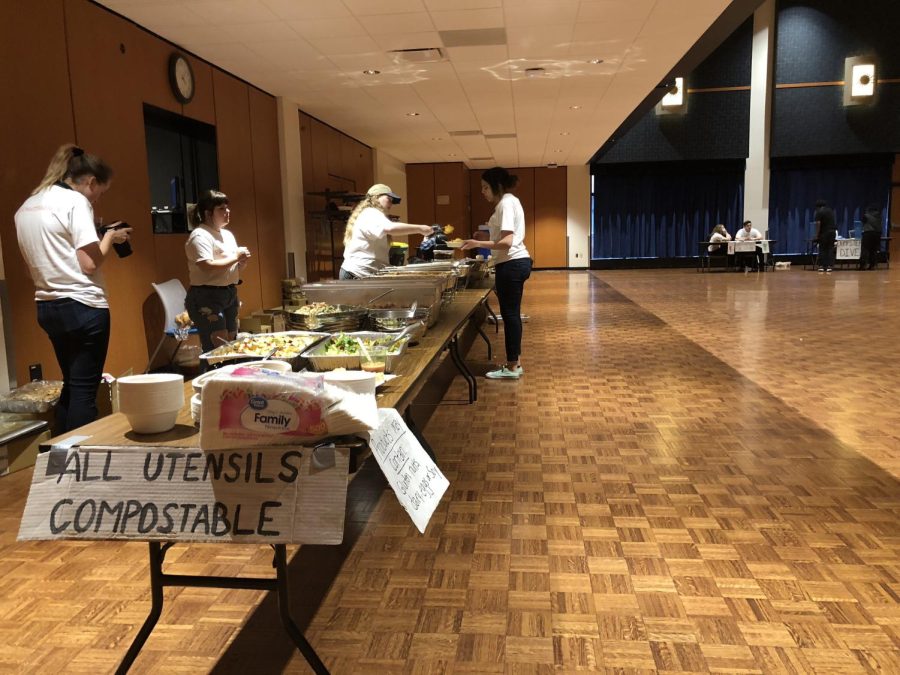The truth behind food insecurity
April 16, 2018
Excited chatter greeted guests Sunday as they walked into the Student Center Ballroom. Four hundred thirty students and staff gathered around long tables in the center of the room, chowing down on an extensive assortment of fruits, vegetables, chicken barbecue sandwiches, quinoa, macaroni and cheese and more.
All of the food they were eating had been donated by local grocery stores and restaurants which would have otherwise thrown the products away due to a lack of need, expiration (even by one day) or faulty container.
Kent State’s very first Feeding the 500 feast, aimed at educating the community about food waste in America by feeding over 400 people with salvaged food.
“I learned a lot about how you can save your food using better containers, and how much food is wasted every day,” said Kevin Roberts, a 16-year-old visiting his sister for “Sibs and Kids” weekend.
Booths around the room held educational games about food waste worldwide. Roberts expressed his shock when he found out grocery stores will throw away sealed containers such as soda bottles while he participated in the dumpster diving simulation.
At a booth nearby, senior environmental conservation biology major Sara Lawler and Kent State graduate Nick Schmucker explained how potential public policy could eliminate salvageable food ending up in the landfill.
“People don’t really understand that some food, even if there is an expiration date, is still good,” Lawler said.
The students asked guests to sign a petition requesting the Ohio government introduce legislation combating food waste with required charitable donations of excess products by grocery stores.
Schmucker said they got the idea for the legislation from a law passed by France in 2016, banning grocery stores from throwing away edible food with fines of up to $4,500 for each infraction.
“Now that we have raised public awareness about food waste, we need to focus on government solutions,” Schmucker said.
While pursuing an International Relations degree at Kent State, Schmucker experienced food insecurity regularly.
“I had to pay my rent. First and foremost I had to get a roof over my head,” Schmucker said. “I was paying for school through grants and loans but buying books every semester hit me bad.”
Schmucker said he struggled to find work between 2009 and 2011 because the 2008 recession forced adults to take jobs designed for college-aged students. Schmucker even resorted to shoveling snow in neighborhoods to stay afloat.
“I bought a lot of flour and I would mix it with water and cook it on a pan to make flatbreads,” Schmucker said. “I tried Ramen but I found myself not having enough energy and not being able to concentrate.”
Schmucker said he believes grocery stores are often reluctant to share their excess food because they concentrate exclusively on turning a profit rather than helping those in need.
“If I knew about things like this when I was going to school you would see me there loading up, hard,” Schmucker said. “They have fats and carbohydrates — everything a person needs, all that would have been wasted.”
Madeline Scalzi is a student life and education reporter. Contact her at [email protected].












